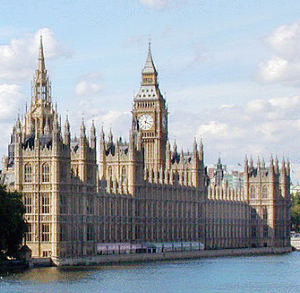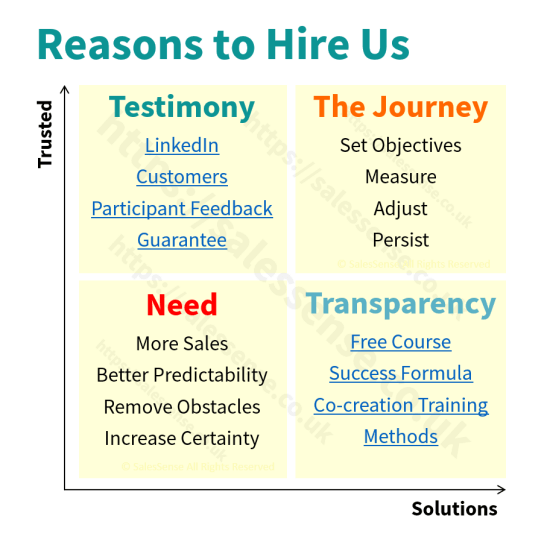Double bid win rates selling to the government.

Sales training for selling to the government, responding to government PPQs, RFIs, RFPs, and tenders to win more government sales.
Governments spend vast amounts of money procuring goods and services. Complex rules dictate their buying process to ensure that taxpayers’ money is spent wisely, yet some suppliers perform much better than others do. Selling to the government is a complex challenge.
Offering the best value does not always lead to a contract. Because of the intricate procurement procedures imposed on government users and their suppliers, even the best salespeople may not be equipped to excel in the Public Sector.
Selling to the Government is an advanced training course that deals with the written and unwritten rules affecting those who sell to national and local governments. It addresses challenges faced and provides methods and tools for winning more government tenders.
Programme Objectives
- Understand procurement rules
- Create relationships that add value to the bid process
- Identify the right opportunities
- Learn to influence the decision
- View the process from the evaluator’s perspective
- Learn how to maximise response scores
- Exploit procurement rules to gain a competitive advantage
- Understand how and when to challenge the procurement team
- Counter competitive initiatives
- Retain influence after the bidding process begins
- Anticipate the negotiation process

Who Should Attend: Salespeople who are transitioning from the commercial sector, or who are beginning a public sector sales career. Experienced salespeople who need to increase win rates or want to refresh their knowledge. Sales managers taking over responsibility for selling to the government. Bid managers and other support staff involved in selling to the government or preparing bids will also benefit.
Selling to the Government Delivery Options
- One to One via twelve 1-hour or six 2-hour virtual sessions.
- £1295 - Learn more.
- One to One on a per-session basis.
- £150 - Learn more.
- Group Training via sixteen 1-hour or eight 2-hour virtual classroom sessions.
- £6395 for up to fifteen people.
- Group Training per session.
- £450 per session. Learn more.
- Fees exclude applicable VAT.
- Traditional Classroom
- The programme is delivered over one or more days at a conference venue or at the customer's offices. The full classroom course takes two days to deliver.
Send an email for more information or use the contact form here.
What are the best practices for winning local and central government tenders?
Winning local and central government tenders is a demanding process. By following best practices, you can significantly improve your chances of success. Here are the key steps and strategies for increasing your likelihood of winning tenders in the UK:
1. Understand the Tender Requirements
Read the specification thoroughly: Ensure you fully understand the scope, requirements, and expectations of the tendering authority. Carefully review the criteria, deadlines, and submission instructions.
Clarify doubts early: If anything is unclear, ask questions during the clarification period to avoid misinterpretation.
Stay compliant: Make sure your bid meets all compliance requirements, including certifications, accreditations, insurance levels, and other mandatory prerequisites.
2. Conduct Pre-Tender Research
Understand the buyer: Research the department or authority issuing the tender. Understand their priorities, previous contracts, and their approach to procurement.
Competitor analysis: Be aware of your competition, their strengths, and areas where you can differentiate your offering.
Know your market: Understand the trends and challenges in your industry. Highlight how your business is aligned with current and future demands.
3. Tailor Your Bid
Customise your response: Don’t submit a generic bid. Tailor your proposal to address the specific needs of the tendering authority and demonstrate a thorough understanding of their goals.
Show added value: Go beyond basic compliance. Explain how you can add value in terms of innovation, efficiency, cost savings, sustainability, or social value.
Demonstrate local knowledge: For local government tenders, showing your understanding of local issues, regulations, and community needs can give you an edge.
4. Focus on Social Value and Sustainability
Align with social value requirements: Central and local governments are increasingly prioritising social value, including community benefits, sustainability, and inclusivity. Demonstrate how your business supports these initiatives.
Highlight your environmental credentials: Many tenders now require businesses to have strong sustainability practices. Highlight your green policies and any initiatives that align with environmental goals, such as carbon reduction.
5. Present a Strong Track Record
Evidence of past performance: Provide case studies, testimonials, and evidence of previous successful contracts to demonstrate reliability and competence.
Risk management: Showcase how you have handled risks in past projects, and how you plan to manage any potential risks related to the new contract.
Relevant experience: Emphasise your experience on similar projects, particularly those of similar scale and scope.
6. Offer Competitive Pricing Without Compromising Quality
Provide a realistic budget: Ensure your pricing is competitive but sustainable. Lowballing may lead to concerns about your ability to deliver, while high prices might eliminate you from consideration.
Detail your cost breakdown: Transparency is key. Provide a clear, detailed breakdown of costs and explain why your pricing represents good value for money.
Value for money: Government bodies are looking for value, not just the lowest price. Explain how your pricing reflects long-term benefits, efficiency, or savings.
7. Ensure Strong Project Management and Delivery Plans
Clear methodology: Outline your project management approach, including timelines, milestones, and deliverables.
Meet deadlines and quality standards: Show how you will meet or exceed the authority’s timelines and maintain high-quality standards throughout the project.
Resource allocation: Ensure you have the necessary resources and capabilities to fulfil the contract requirements and provide clear evidence of this.
8. Pay Attention to Detail
Check accuracy: Proofread your submission for any errors, inconsistencies, or missing information. A bid with mistakes can undermine your credibility.
Follow the formatting guidelines: Adhere to any required formats, word limits, and submission protocols.
Submit on time: Make sure you submit the bid before the deadline. Late submissions are typically not accepted.
9. Build Relationships and Networks
Attend pre-tender meetings: If possible, attend any pre-tender meetings or briefings. This can give you a better understanding of the buyer’s expectations and allow you to ask questions.
Establish long-term relationships: Foster ongoing relationships with government bodies. Networking and maintaining contacts can give you insights into future opportunities and decision-making processes.
Utilise frameworks: Get on relevant procurement frameworks or Dynamic Purchasing Systems (DPS) which pre-qualify suppliers, increasing your chances of being invited to tender for future opportunities.
10. Invest in Continuous Improvement
Learn from feedback: If unsuccessful, request feedback from the tendering authority. Use this to improve future bids.
Stay updated on procurement practices: Keep up with changes in government procurement policies, regulations, and trends, such as the move towards digital procurement.
Improve internal processes: Regularly review and improve your tendering processes, including project management, pricing strategies, and compliance documentation.
11. Utilise Technology
Use e-procurement tools: Many government tenders are now managed online through portals like the UK Government’s ‘Contracts Finder’ or Crown Commercial Service platforms. Familiarise yourself with these systems to ensure smooth submission.
Document management: Have a robust document management system in place to ensure you can quickly and efficiently respond to tender requirements with up-to-date information.
By following these best practices, you will be better positioned to win both local and central government tenders in the UK. Each tender is unique, so adaptability and a thorough understanding of the tendering authority's needs are crucial to success. For better preparation, take our course.
Large Numbers
Licensing and train-the-trainer options enable self-delivery. To find out more, call or use the links below. Associate and Affiliate representation is welcomed. To promote or deliver this course, get in touch directly.
Flexible Support
If you are looking for training in selling to the government or need to win government tenders, our public sector sales course offers a flexible and reliable solution. Telephone +44 (0)1392 851500. We will be pleased to learn about your needs and discuss some options. Alternatively, email custserv@salessense.co.uk or use the contact form here.






















